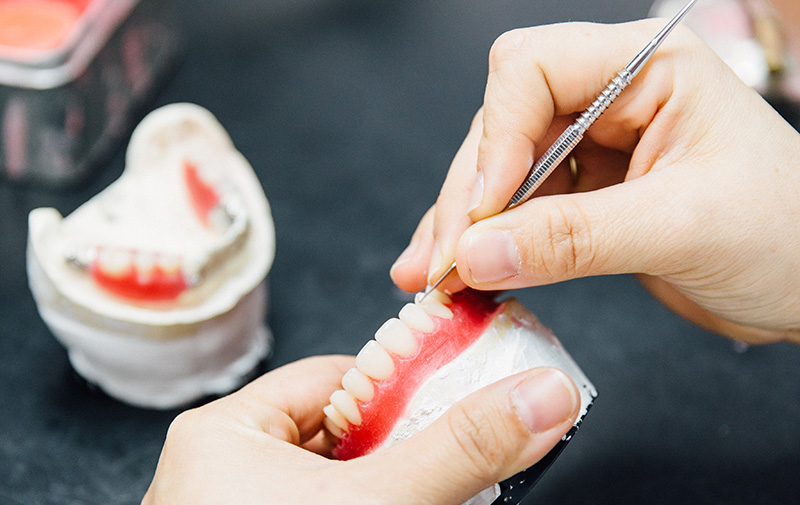Four types of dentures are available:
- implant-supported;
- precision, equilibrated or balanced;
- semi-precision;
- conventional or centric.

Implant-supported dentures
This type of denture is secured to one or more anchoring points provided by implants inserted into the bone. The treatment protocol associated with such prostheses requires close collaboration between the denturologist and a dental surgeon, oral and maxillofacial surgeon, or other specialists.
Precision, equilibrated or balanced dentures
Physiological data points are recorded to achieve a more personalized fit that allows for protrusive (forward) movement and lateral (left and right) movement of the jaw without tooth interference.
This category includes implant-supported dentures.
Semi-precision dentures
The denturologist uses a partially adjustable articulator to make this type of denture. The articulator reproduces protrusive and lateral mouth movements, but not as accurately as precision dentures.
Conventional or centric dentures
A plane line—or simple-hinge—articulator is used to make this type of denture. While centric dentures simulate the opening and closing motion of the jaw, they preclude lateral movement and are not adjusted to account for chin mobility.
